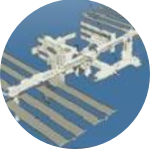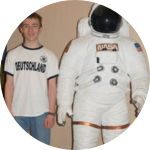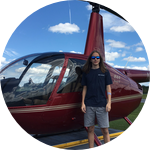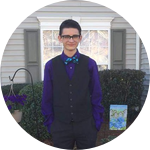About This Project
Our team is testing the TinyDuino, which is a new, small, stackable microcontroller with low power consumption. It can be used to collect data or control systems as a tiny computer, and could be ideal for small satellites. We are testing it through logging data from a magnetometer, temperature sensor, and accelerometer to a micro SD card. This microcontroller could reduce the cost of launching small satellites by allowing them to be smaller. It could also allow standard sized craft to do more.
Ask the Scientists
Join The DiscussionWhat is the context of this research?
In recent years space travel has become increasingly affordable through endeavors by SpaceX and other groups. One such innovation is the small satellite, which allows greater access than ever before to something that was once the sole realm of government agencies with millions of dollars in funding. Today small satellites are allowing students to gain valuable experience by launching satellites to collect data, test hardware for larger craft, and carry out various experiments. It costs around $20,000 to launch a 5cm cubic PocketQube. (http://www.pocketqubeshop.com/cost/) This makes such a satellite potentially ideal for many researchers and universities/schools. However, the small volume and surface area necessitate very small electronics that consume little power.
What is the significance of this project?
The TinyDuino is a relatively new microcontroller that is only two centimeters square, is stackable, and consumes little power. It also follows the popular Arduino format. This microcontroller would be ideal for small satellites and other space projects, where space and power come at a premium. Microcontrollers are tiny computers that can control sensors, radios, cameras, etc., and act as the brains of many projects. To our knowledge, this would be the first flight of this microcontoller in outer space. This suborbital spaceflight would give us a brief test in space to evaluate its performance for future, more involved missions while spending only a fraction of the cost for an orbital launch. Future projects could do things like measure cosmic radiation, observe Earth, relay signals, etc.
What are the goals of the project?
We plan to test the TinyDuino through logging data from a magnetometer, temperature sensor, and accelerometer to a micro SD card. A magnetometer measures the Earth's magnetic field/magnetism, and an accelerometer measures the forces of acceleration. These three sensors can tell us what sort of conditions the microcontroller endured/survived, and would verify its proper function during the spaceflight. We have already purchased, programmed, and assembled the electronics. One of our members is preparing to 3D print the protective enclosure for the payload. This leaves launch expenses as our last great hurdle. This makes for a relatively simple, but valuable test, and will give us useful experience for our careers after high school and college.
Budget
We have previously constructed and paid for our payload's electronics, eliminating that cost. We previously needed to raise $5400 in order to get the $5000 necessary to purchase the NC-1 payload section from UP Aerospace after Experiment.com's platform fee was deducted, however yesterday (the evening of May 2nd) I was given exciting news. Celestis Memorial Spaceflights has already purchased multiple larger payload sections for the November UP Aerospace launch and they said that they would fly our payload in their spare space for only $1000! We were very surprised but very happy. This thus leaves us with around $3000 to put towards our next project, which is a satellite based around the TinyDuino. We could also consider launching two payloads on suborbital flights/further testing the TinyDuino. Thank you so much to everyone who has helped us! We could never have done it without you!
Endorsed by
Meet the Team
Affiliates
Team Bio
Space Chargers was founded in 2014 by Zachary Hoelscher. We were created to launch weather balloon payloads, and have launched two so far. Jetstream III will launch later this year, and will have multiple high resolution cameras, along with altitude and temperature logging capabilities. We are now getting involved with more complex things, such as this suborbital payload. We hope to one day launch a small Earth-observation satellite based around the TinyDuino.
Zachary Hoelscher
I am currently an engineering student at Virginia Tech, and plan to double major in aerospace engineering and physics. Following the completion of my undergraduate studies, I hope to pursue a doctorate in astrophysics. I have been fascinated with outer space my entire life, and aspire to become an astronaut. In my spare time I enjoy aviation, backyard astronomy, building rockets, painting, and running. In the 8th grade I founded Space Chargers with the objective of placing a payload into suborbital space, a goal that was achieved on September 17th, 2018 with the launch of the Eagle 1 payload.
Niall McKinnon
I am 15 years old and in the tenth grade at Cox Mill High School in Charlotte, North Carolina. I plan on getting my master's degree in Aerospace Engineering and then going to work for SpaceX. Eventually, either from being chosen or by my own finances, I will join their colony on Mars.
Viswa Yakkala
I am currently a 10th grader. For most of my life I have been fascinated with business. I believe that in the business world profits are focused around innovation. As a result I have taken an interest into the world of science and technology. I hope to one day found and build a successful business, and I hope to do so with technology and science at its heart. I believe that this project is the first step on my way to creating and managing that business, and I know the lessons that our group pick up from this project will be useful throughout our lives and our careers.
Alexander Eaton
My name is Alexander Eaton. I am in the 10th grade, and I enjoy writing and learning about aviation. I am a very big Prince fan. I like Vanity, too. I have been in this club since our first weather balloon launch, and enjoy our projects.
Marcus Ballard
I've always been a relatively normal student, good grades, average interests, etc. But in recent years I have, thanks to my 8th grade science teacher, started to have a fascination in biology and physics as a whole. I decided to join a club in which we set up and launch weather balloons and rockets with the intent of scientific research and experience, rather than using google to find the information. I'm hoping to learn a lot over our next project!
My hobbies include becoming ever more proficient in difficult video games, doing small in-house science experiments, reading, building various objects, like wooden tables, and building small metallic models.
Additional Information
To see an extended edition of our video, including a message from our vice president, Viswa, please follow the following link:
https://www.youtube.com/watch?v=zNHFoMWWLik
Project Backers
- 48Backers
- 101%Funded
- $2,025Total Donations
- $42.19Average Donation






